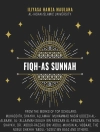Breaking new ground in the study of Spinoza’s philosophy, the essays in this volume explore the extent to which Spinoza may be considered a Jewish thinker. The rich diversity of Spinoza scholarship today is represented here by a wide range of intellectual methods and scholarly perspectives—from Jewish philosophy and history, to Cartesian-analytic and Continental-Marxist streams of interpretation, to the disciplines of political science and intellectual history. Two questions underlie all the essays: How and in what measure is Spinoza’s a Jewish philosophy, and what is its impact on the project of Jewish philosophy as a living enterprise now and for the future? The contributors’ varied perspectives afford a highly nuanced vision of the multifaceted Judaic tradition itself, as refracted through the Spinozist lens. What draws them together is the quest for enduring insights that emerge from the philosophy of Spinoza.
Tabela de Conteúdo
Abbreviations
Part I. Laying the Groundwork
1. Introduction
Heidi M. Ravven and Lenn E. Goodman
2. What Does Spinoza’s Ethics Contribute to Jewish Philosophy?
Lenn E. Goodman
Part II. Metaphysics
3. Love of God in Spinoza
Lee C. Rice
4. Spinoza’s Metaphysical Hebraism or Hebraic Metaphysics
Warren Zev Harvey
5. Maimonides, Spinoza, and the Problem of Creation
Kenneth Seeskin
6. That Hebrew Word: Spinoza and the Doctrine of the Shekhinah
Warren Montag
Part III. Theology and Epistemology
7. Maimonides, Spinoza, and the Book of Job
Edwin M. Curley
8. Spinoza’s Rupture with TraditionHis Hints of a Jewish Modernity
Heidi M. Ravven
9. Why Spinoza Chose the Hebrews: The Exemplary Function of Prophecy in the Theological-Political Treatise
Michael A. Rosenthal
Part IV. The Historical Setting
10. Spinoza’s Excommunication
Richard H. Popkin
About the Contributors
Index
Sobre o autor
Heidi M. Ravven is Professor of Religious Studies at Hamilton College.
Lenn E. Goodman is Professor of Philosophy at Vanderbilt University. He is the author of many books, including
Jewish and Islamic Philosophy: Crosspollinations in the Classic Age, and the editor of
Neoplatonism and Jewish Thought, also from SUNY Press.











